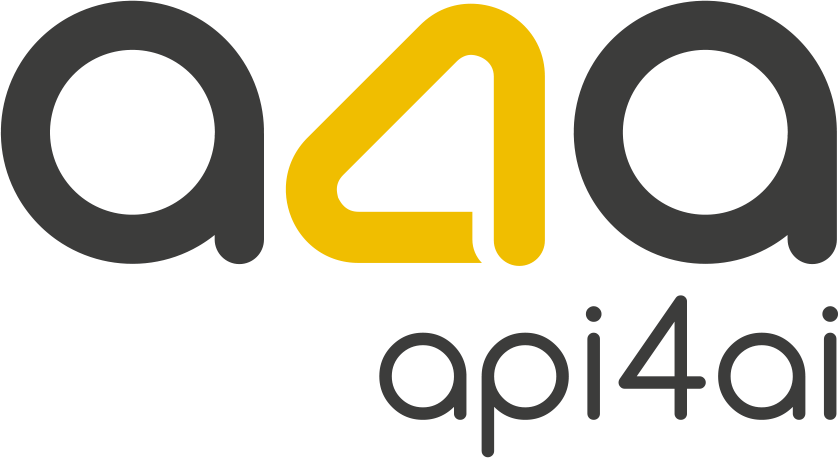
Introducing Virtual Try-On API: Transform Online Shopping with AI-Powered Clothing Visualization
API4AI Virtual Try-On uses advanced deep learning algorithms to seamlessly blend garments onto model photos, preserving natural poses and body proportions. Perfect for e-commerce platforms, fashion retailers, or any application looking to enhance the online shopping experience.

Introducing Image Upscale API: Transform Low-Resolution Images into Stunning High-Quality Visuals
Upscale images 4x with AI-powered enhancement API. Transform pixelated photos into crisp, high-resolution visuals. Free demo available. Try API4AI now!

Introducing the All-New Fashion API
Discover API4AI's upgraded Fashion API — now with full object detection for clothing & accessories. Get bounding boxes, confidence scores & multi-item detection.
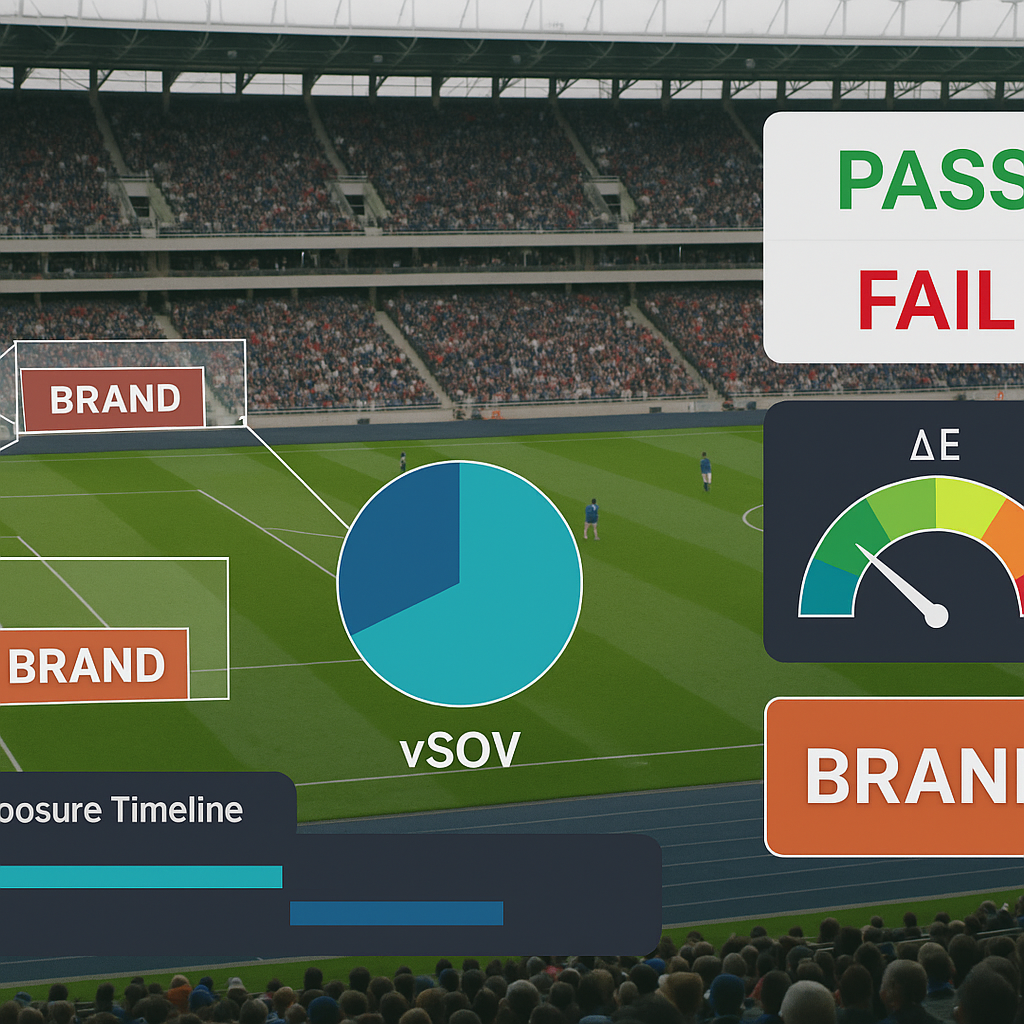
Contract Compliance Bot: Logo Specs vs. Reality
Sponsorship contracts don’t buy “exposure” in general — they buy specific, measurable delivery: a logo must be on screen for a minimum number of seconds, occupy a defined share of the frame, appear in the correct brand color, and stay within approved zones. The problem is that these requirements are often verified manually, leading to disputes, delayed invoices, and margin leakage.
A Contract Compliance Bot changes that. By detecting logos, measuring size and placement, checking color fidelity, and accruing duration automatically, it issues a clause-by-clause pass/fail report before invoices are released. The result: fewer make-goods, faster cash collection, and auditable evidence packs that sponsors and finance teams can trust.
For executives, the takeaway is clear: treat compliance as revenue assurance. With the right mix of ready-to-use APIs (logo recognition, OCR, anonymization) and tailored rule engines, you can make compliance a real-time capability that protects today’s margin and strengthens tomorrow’s renewals.
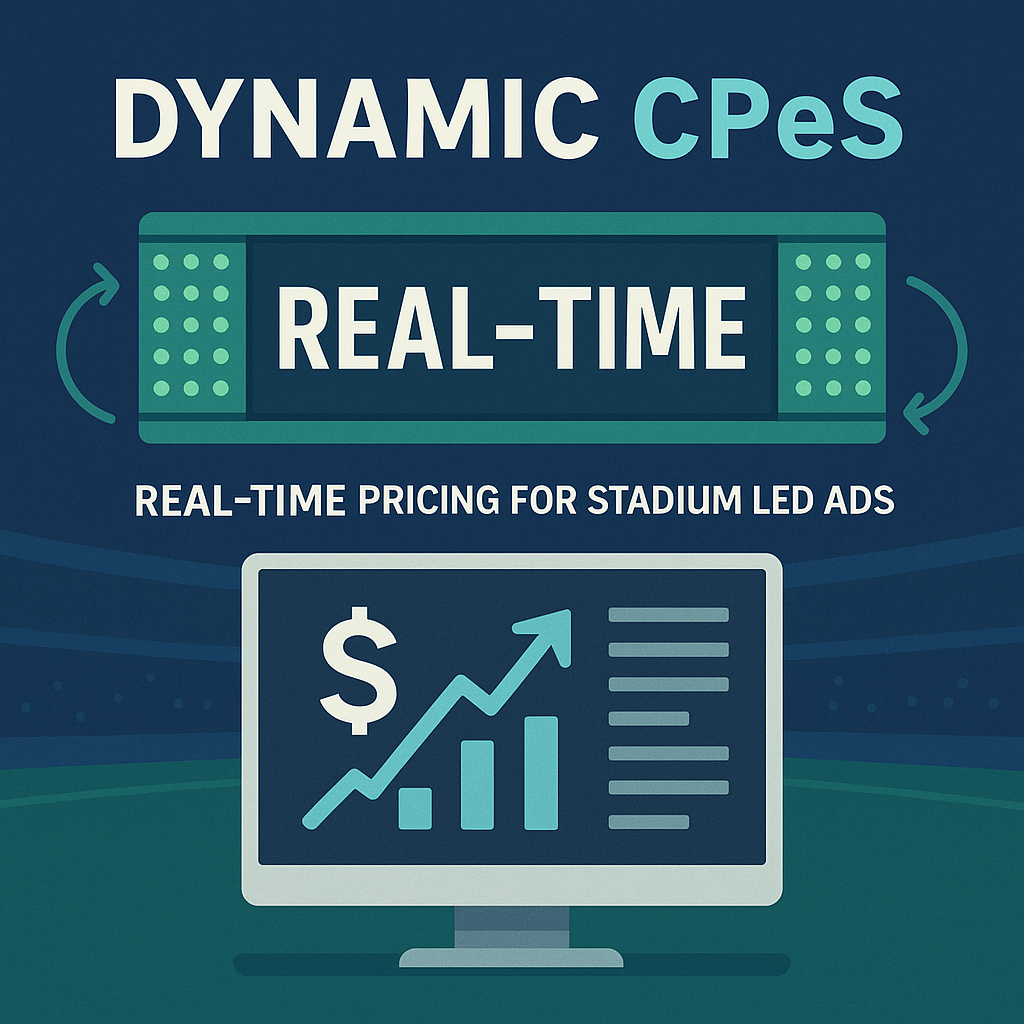
Dynamic CPeS Calculator for Real-Time Ad Rotations
When an LED ribbon can flip creatives in seconds, every visible moment becomes tradable inventory. This post shows how a live Cost-per-Exposure Second (CPeS) feed transforms static perimeter boards into real-time revenue engines — letting rights-holders throttle or accelerate rotations mid-match, meet contractual screen-time promises, and unlock programmatic-style pricing. From the computer-vision APIs that verify each logo to the control hooks that adjust pacing on the fly, discover the architecture and boardroom playbooks that turn stadium LEDs into data-driven profit centers.
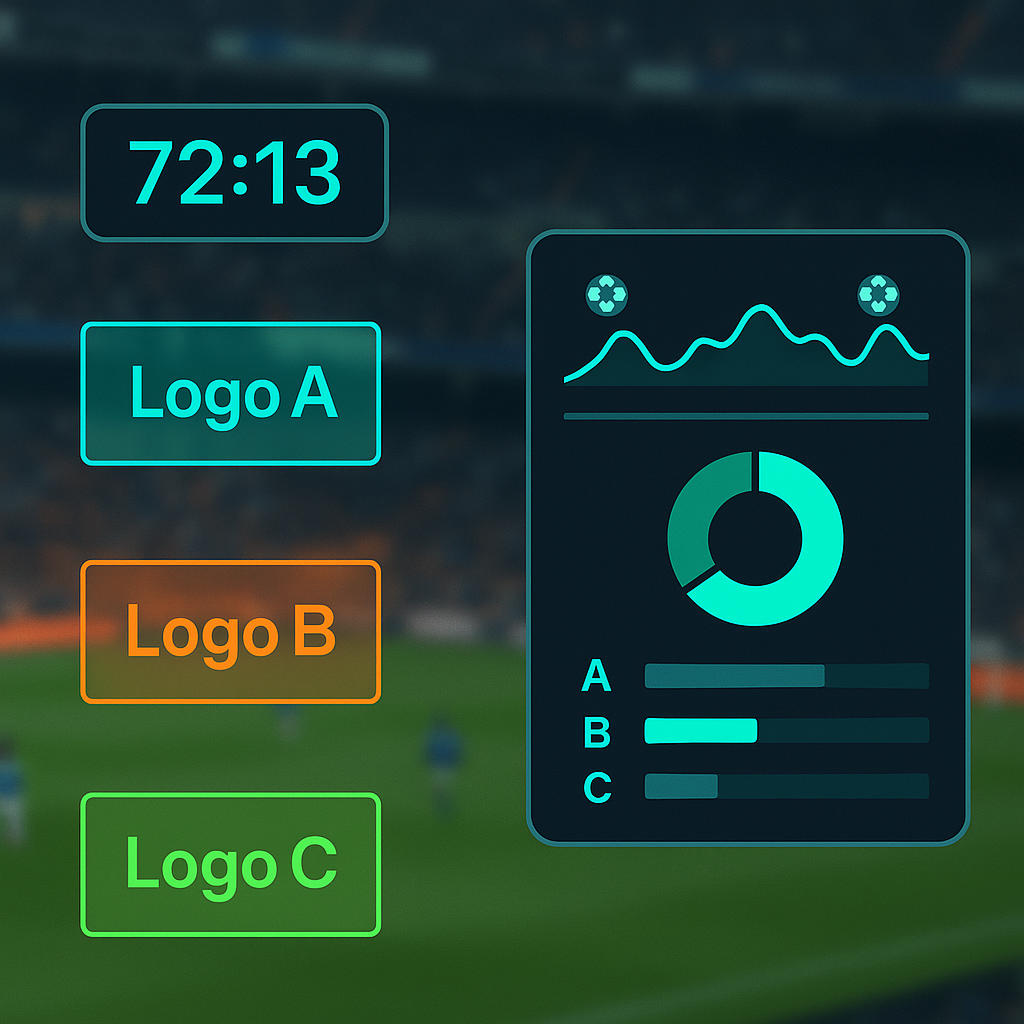
Scoreboard OCR Meets Logo Metrics: Context Matters
Sponsors don’t pay for minutes on screen — they pay for moments. This post shows how reading the live scoreboard with OCR and fusing it with logo analytics turns generic “screen time” into impact time tied to goals, timeouts, penalties, and late-game drama. You’ll see why context changes valuation math and how three board-ready KPIs — Impact-Adjusted Exposure Seconds (IAES), moment-filtered vSOV, and impact-adjusted CPeS — defend rate cards, reduce make-goods, and shift spend to higher-yield assets. We outline a pragmatic rollout: start with ready APIs (OCR, Brand Recognition, Image Anonymization), prove pricing lift on a short pilot, then add custom rules for your league and workflows. The outcome is a moment-based sponsorship product backed by audit-ready evidence — and a clearer path to ROI.
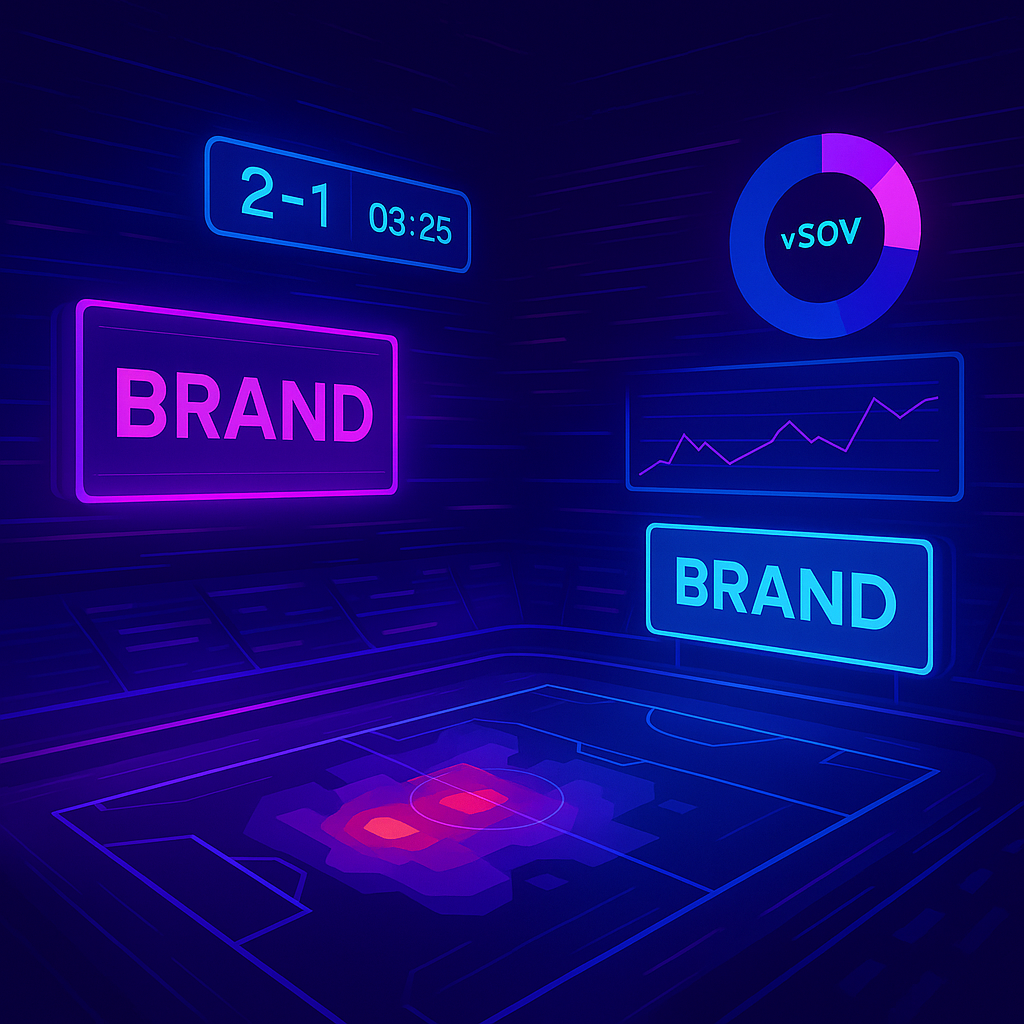
E-Sports Overlays: Measuring Virtual Brand Presence
Esports overlays — virtual billboards, HUD bugs, replay wipes — now command real budgets, and they deserve stadium-grade measurement. This post shows how to turn gameplay and broadcast footage into qualified exposure seconds using modular computer-vision blocks (logo recognition, OCR, object detection, anonymization), then roll those seconds into two board-ready KPIs: vSOV (visual share of voice) — how much of the screen you truly owned — and CPeS (cost per exposure second) — what you paid for that ownership. Grounded in current IAB gaming guidance, the framework helps publishers and sponsors price, verify, and optimize inventory across titles, proving value with auditable numbers — and giving leadership a practical path to faster deals, cleaner renewals, and better unit economics.
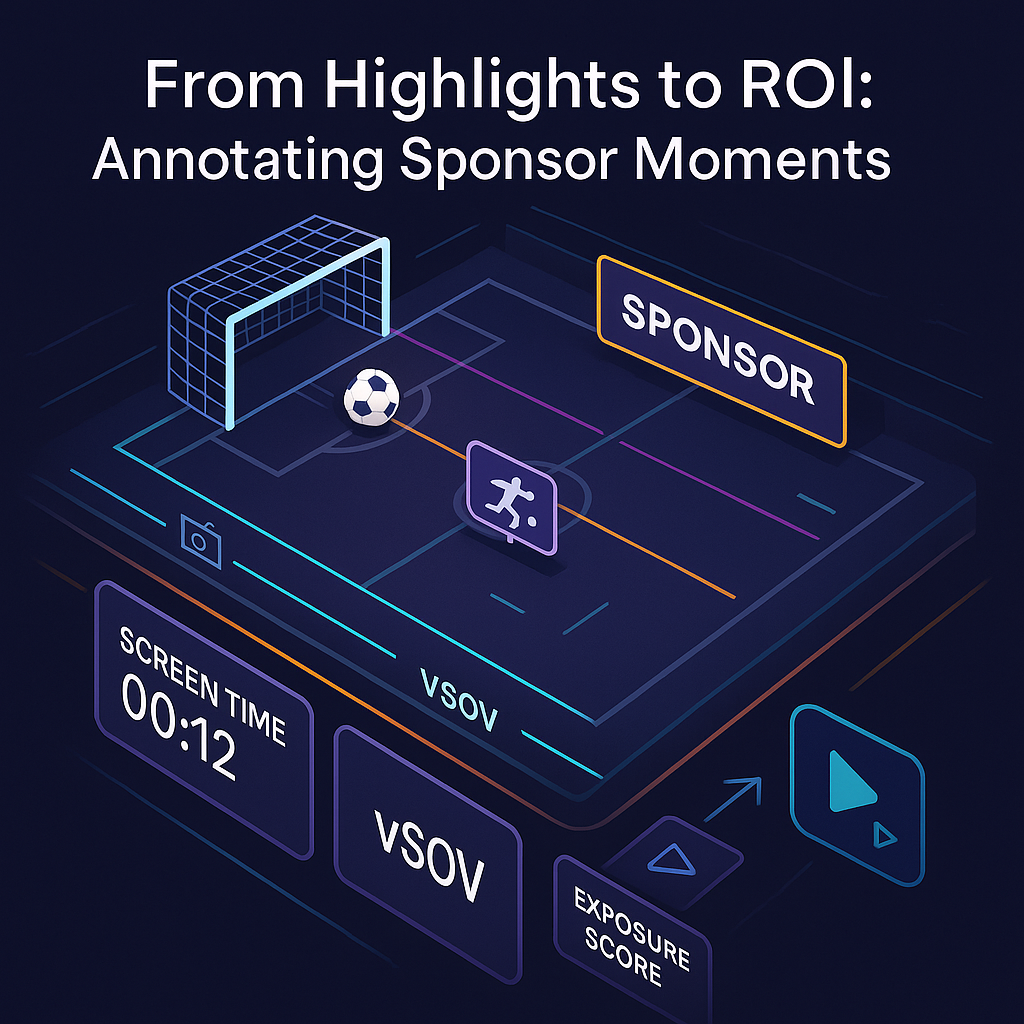
From Highlights to ROI: Annotating Sponsor Moments
Sports highlights don’t just drive views — they can prove sponsorship ROI. This post shows how auto-tagging the exact seconds when a goal and a sponsor logo share the frame turns highlights into commercial evidence. Editors receive ready-made, brand-sorted clips with Screen Time baked in for instant social; commercial teams get standardized KPIs — vSOV, Exposure Score (area × position × clarity), and Cost per Exposure Second (CPeS)—to price, defend, and optimize deals. We outline a pragmatic path: assemble fast with ready vision APIs (logo recognition, OCR, anonymization), then tailor models for your venues to cut costs and lift accuracy. The result is faster distribution, cleaner make-goods, and board-level proof that turns highlights into revenue.
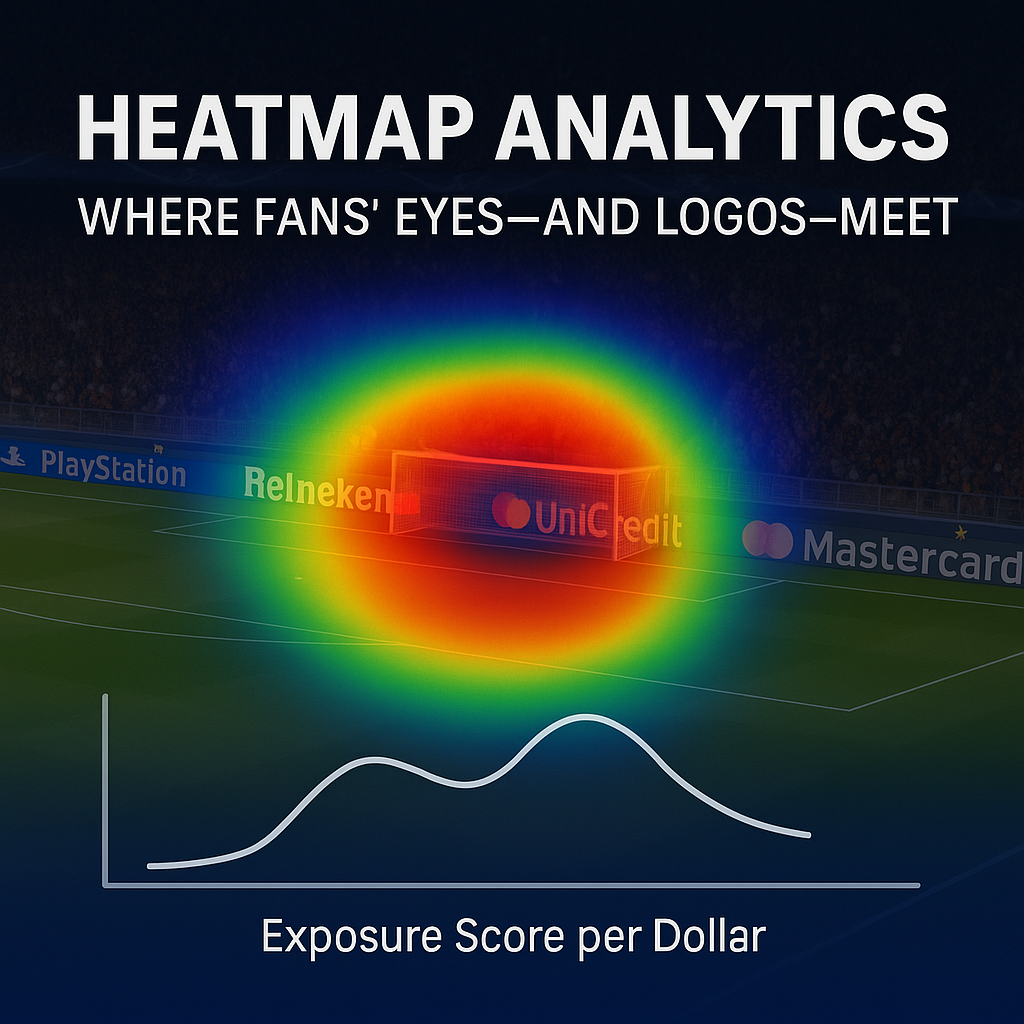
Heatmap Analytics: Where Fans’ Eyes—and Logos—Meet
In the new era of sports sponsorship, visibility is no longer enough. The true value lies in capturing and measuring the exact moments when fans’ eyes — and their attention — land on a sponsor’s logo. By combining AI-powered logo detection with advanced attention heatmaps, rights-holders and brands can finally quantify “hotspot” exposure and turn it into a single, actionable metric: Exposure Score per Dollar. This data-driven approach is rapidly transforming how stadium inventory is priced, how sponsorship contracts are negotiated, and how every second of attention turns into tangible ROI. Discover how heatmap analytics are moving sports marketing from impressions to intention — and giving C-level executives the tools they need to outpace the competition.
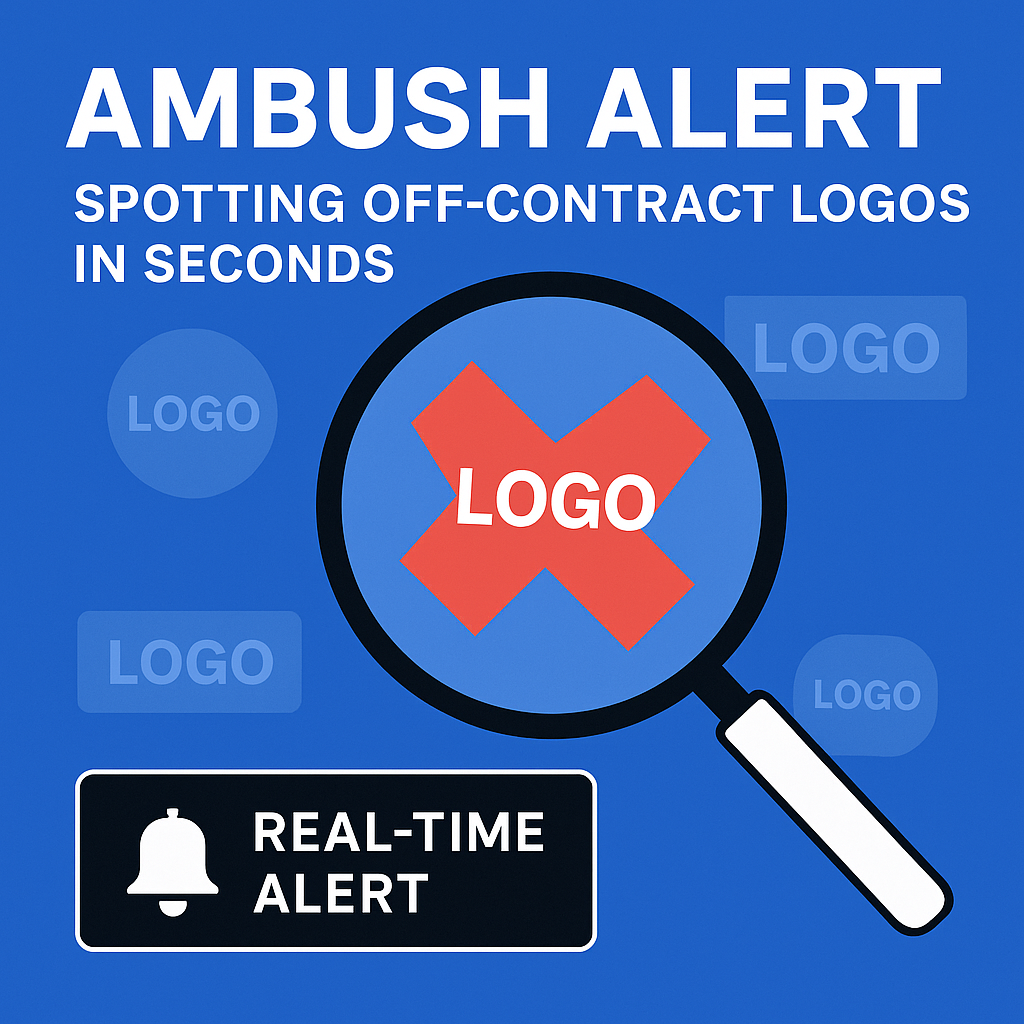
Ambush Alert: Spotting Off-Contract Logos in Seconds
Unauthorized logos can appear in seconds, but with today’s real-time computer vision, so can compliance. As sponsorship exclusivity becomes a high-stakes battleground for major events, forward-thinking organizations are leveraging AI-powered logo detection and instant alerting to flag ambush marketing before it becomes a contract breach. In this post, discover how leading venues and rights holders use live video analytics to protect multi-million-dollar deals, keep sponsors confident, and turn compliance into a measurable board-level KPI — no human spotters required.
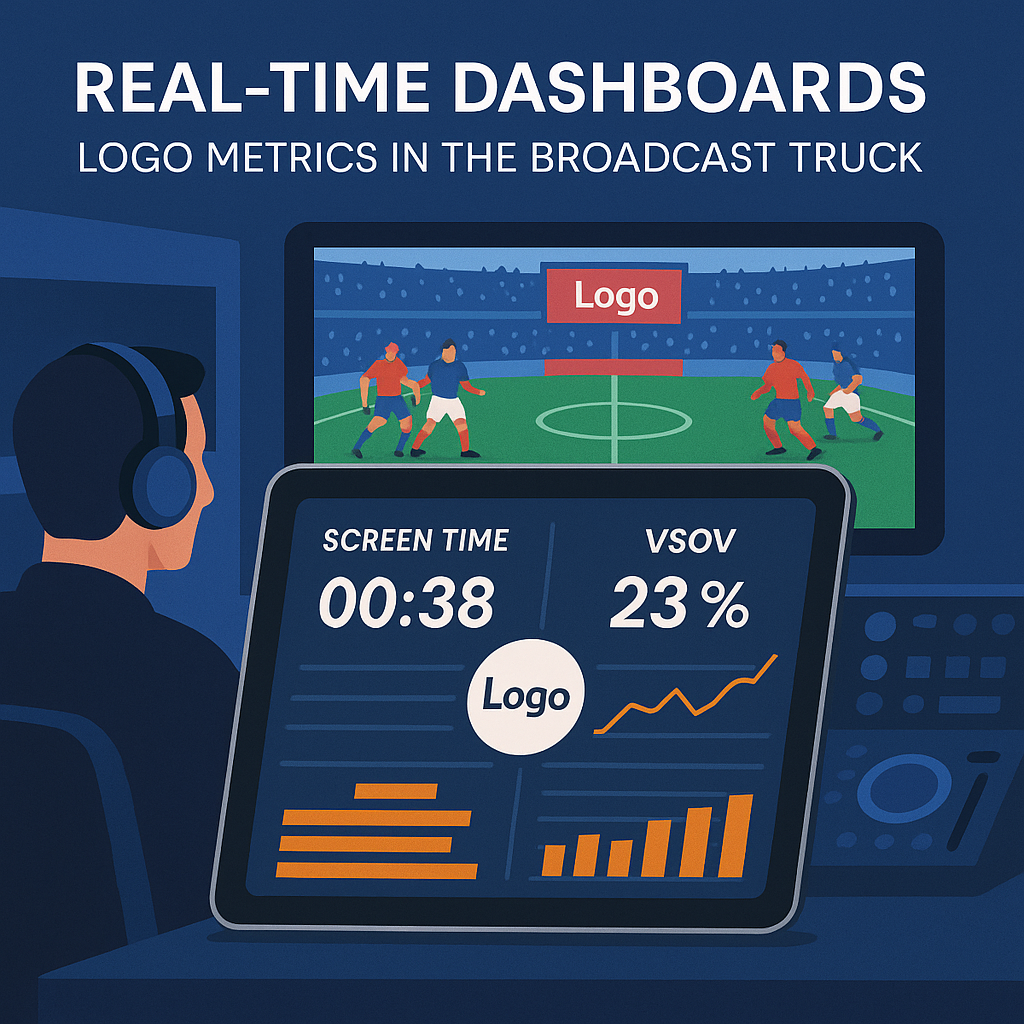
Real-Time Dashboards: Logo Metrics in the Broadcast Truck
Producers can’t optimize what they can’t see. This post shows how real-time dashboards in the broadcast truck turn sponsorship from a next-day report into a live, revenue lever. Using low-latency, edge-AI pipelines, we push Screen Timeand visual Share of Voice (vSOV) to tablets in under two seconds — so directors can rebalance LED rotations, cue lower-thirds, and protect rate cards during the game. You’ll get an executive blueprint for the on-truck architecture, the quality-weighted metrics that stand up in negotiations, and a pragmatic build-vs-buy path that combines ready services — such as a Brand Recognition API — with targeted customization. The outcome: fewer make-goods, stronger auditability, and mid-game yield management that compounds across a season.
Cost per Exposure Second: Pricing the Pixel
As boards and CFOs demand ever-greater accountability for sponsorship spend, Cost per Exposure Second (CPeS) is emerging as the new gold standard for pricing on-screen brand visibility. Instead of relying on guesswork or outdated impression models, leading rights holders now merge advanced computer vision, real-time analytics, and dynamic rate cards to price every second of exposure — down to the pixel. This approach unlocks full transparency, enables flexible sponsorship tiers, and builds trust with both brands and investors. In this post, we break down the math, the technology, and the roadmap required to operationalize CPeS before next season — turning every moment on screen into a measurable, board-ready asset.
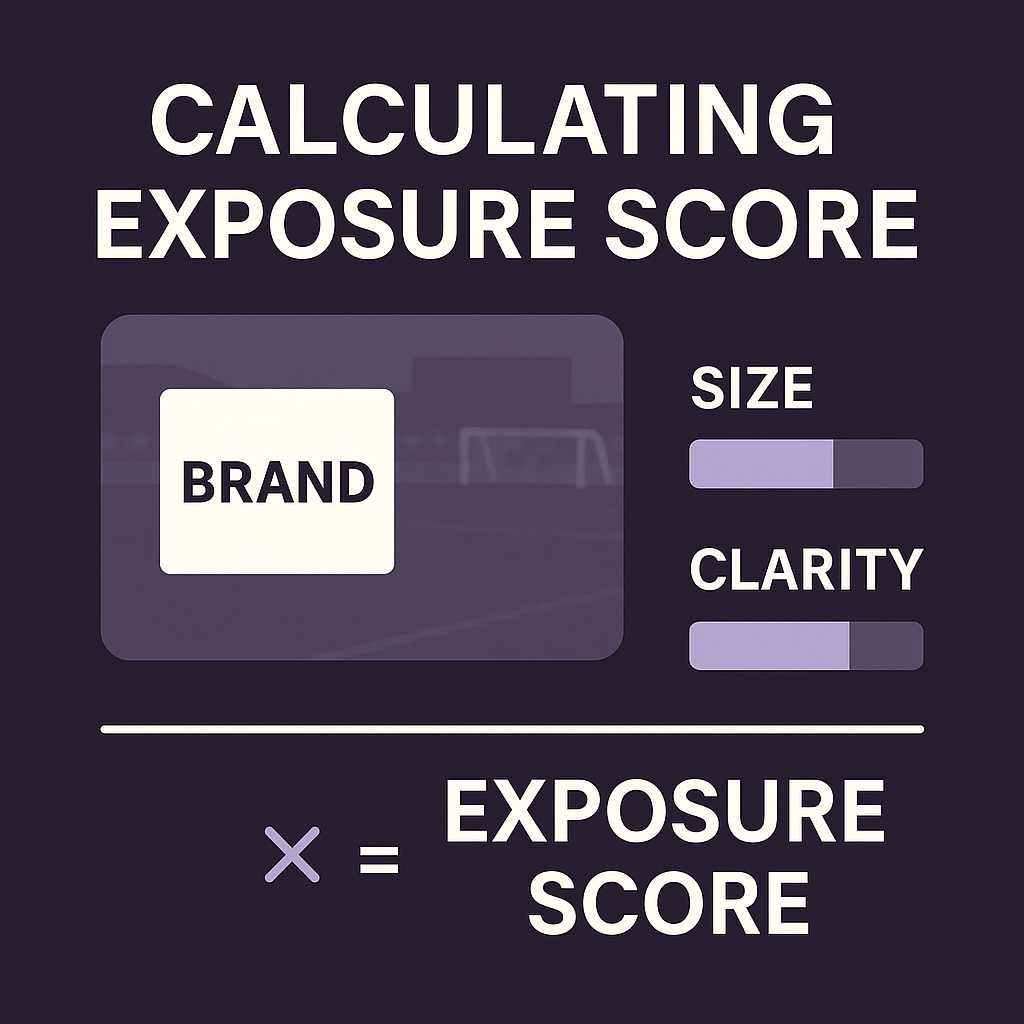
Calculating Exposure Score: Size Meets Clarity
In today’s high-stakes world of sports and entertainment sponsorship, not all on-screen logos are created equal. As global spend on brand exposure nears $190 billion, the old metrics — raw “seconds on screen” or impression counts — no longer satisfy the boardroom. Forward-looking executives are demanding a new standard: Exposure Score. This AI-powered metric weights not just how long a logo appears, but how large, where, and how clearly. The result? A precise, auditable KPI that transforms fleeting pixels into bottom-line value, helping CEOs, CFOs, and CMOs maximize every sponsorship dollar, justify negotiations, and outpace the competition. Discover how next-generation algorithms are redefining sponsorship ROI — and why those who adopt early will lead the next decade of brand visibility.
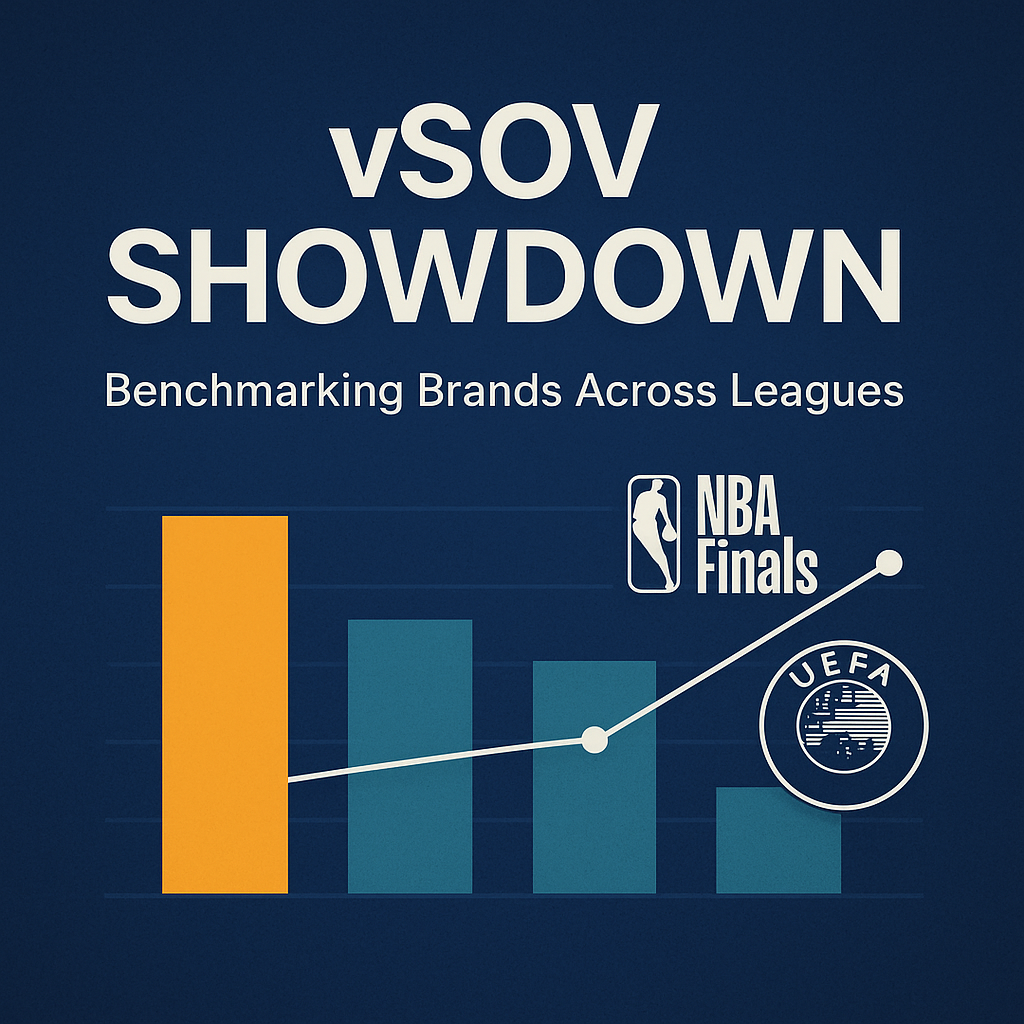
vSOV Showdown: Benchmarking Brands Across Leagues
In today’s sponsorship economy, logos are more than just symbols on jerseys or billboards — they are measurable assets that can make or break multimillion-dollar deals. The challenge? Traditional metrics like “exposure seconds” don’t tell the full story. A logo on the NBA Finals broadcast isn’t directly comparable to one on a UEFA Champions League pitch. Without normalization, executives risk comparing apples to oranges, leading to costly misallocations.
This post explores how normalized Visual Share of Voice (vSOV) transforms sponsorship reporting from raw screen time into a reliable, cross-league benchmark. By applying AI-powered computer vision, audience weighting, and context-based scoring, marketers can finally measure sponsorship ROI with the same rigor as financial investments. For CMOs, CFOs, and CEOs alike, normalized vSOV is emerging as the new currency of global sports sponsorship — turning brand visibility into a strategic advantage.
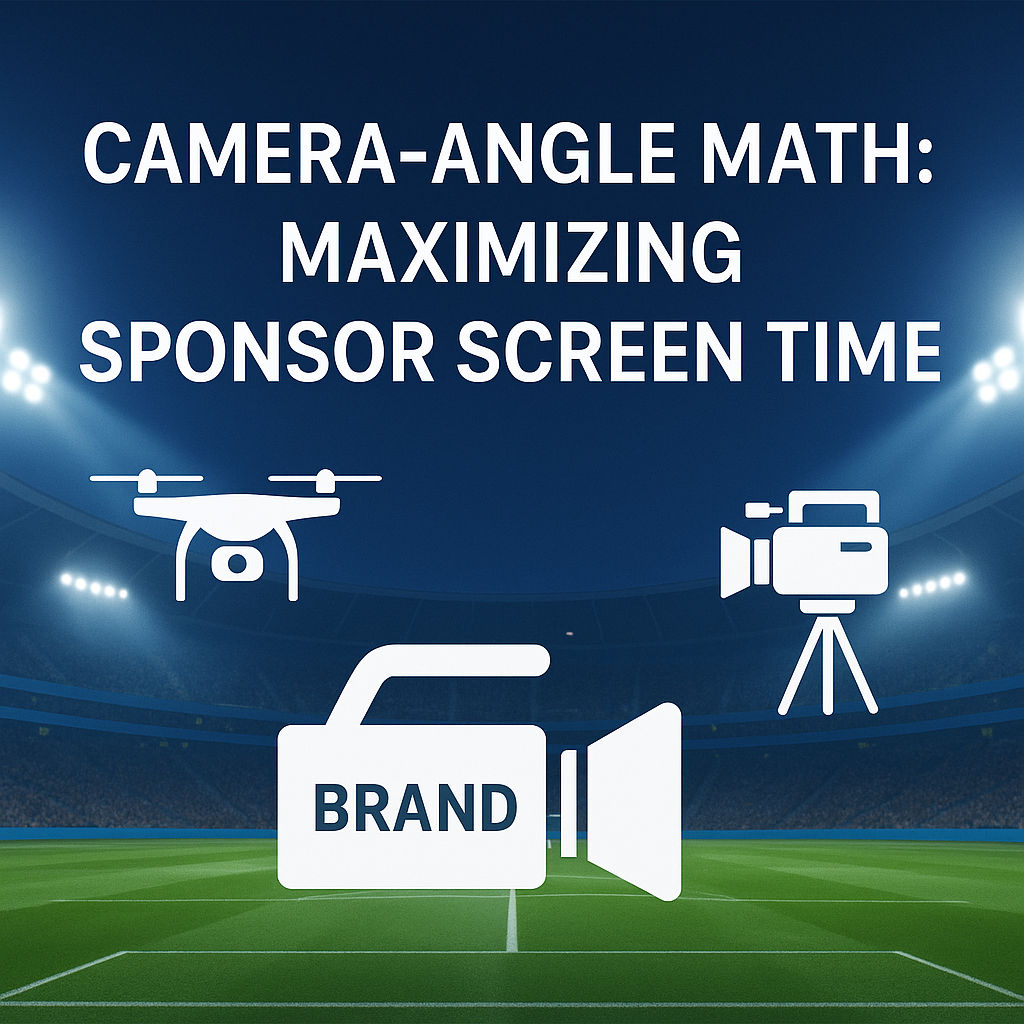
Camera-Angle Math: Maximizing Sponsor Screen Time
In modern sports sponsorship, visibility is no longer guaranteed by logo placement alone — it’s dictated by camera angles. A logo that dominates the main broadcast may vanish in drone shots or sideline replays, leaving millions in potential value unseen. To solve this, forward-looking sponsors and rights-holders are turning to multi-feed video stitching and AI-powered analytics that measure exposure across every angle and platform. By tallying true screen time, share of voice, and exposure clarity, executives gain auditable metrics that transform negotiations, justify ROI, and protect brand integrity. The future of sponsorship valuation is clear: camera-angle math is now boardroom math.
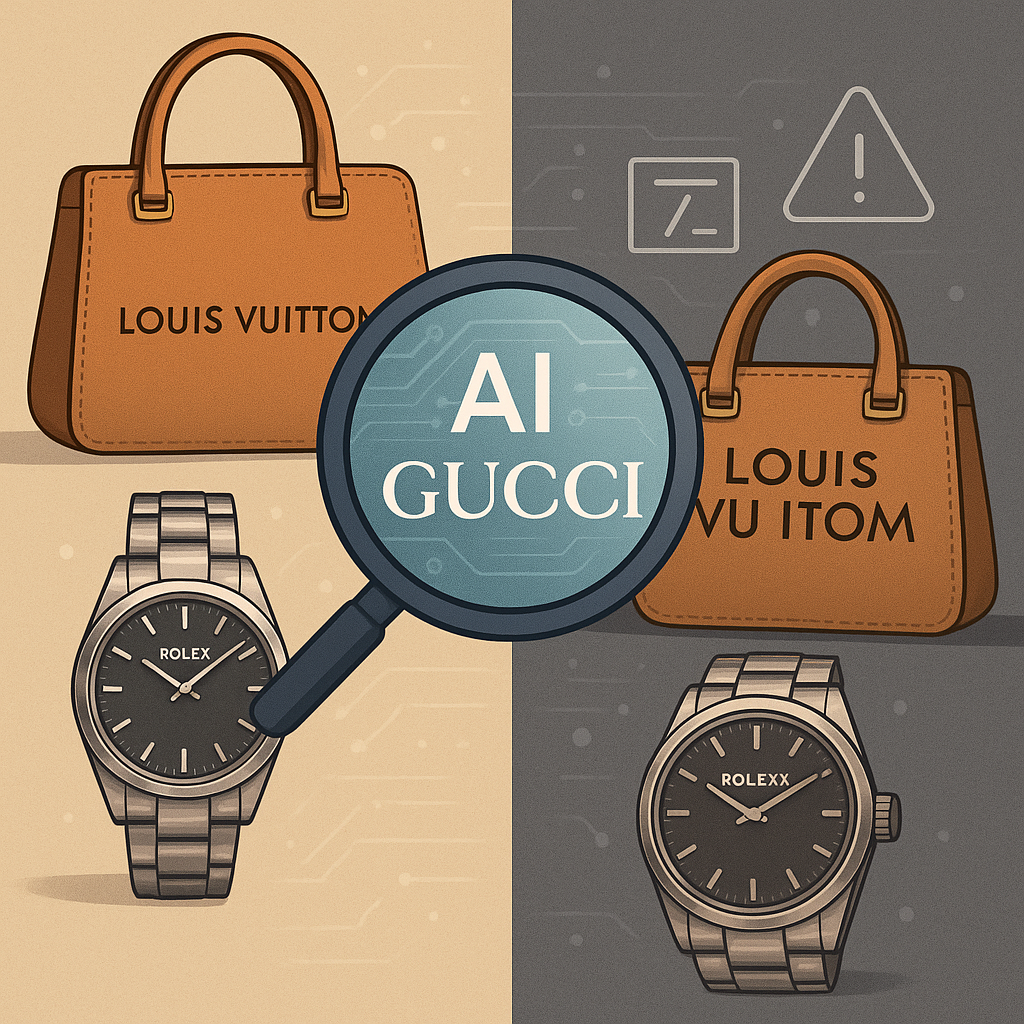
Counterfeit Watchdogs: Logo Forensics on Resale Sites
In the fast-growing world of luxury resale, every product photo is a new battleground for trust. As peer-to-peer marketplaces surge, counterfeiters are matching pace — deploying ever-more sophisticated fakes that slip past human moderation and threaten brand equity at scale. For C-level leaders, this is no longer just a compliance challenge but a strategic imperative. Today, automated logo forensics powered by AI is emerging as the frontline defense, delivering sub-second authenticity checks that outpace fraudsters, protect revenue, and fortify consumer confidence. This post explores how advanced image recognition—integrated seamlessly into listing workflows — can transform counterfeit risk from a persistent liability into a source of competitive advantage for brands and platforms alike.

AR Filter Safety: Detecting Unwanted Logos in Lens Effects
Augmented-reality face filters reach billions of users each day — yet a single unlicensed logo in a lens can ignite lawsuits, erode equity, and drain marketing budgets overnight. This post shows C-level leaders how real-time computer-vision scans inside AR streams convert that risk into a competitive edge, unlocking premium “certified-safe” inventory while safeguarding brand integrity at the speed of a swipe.
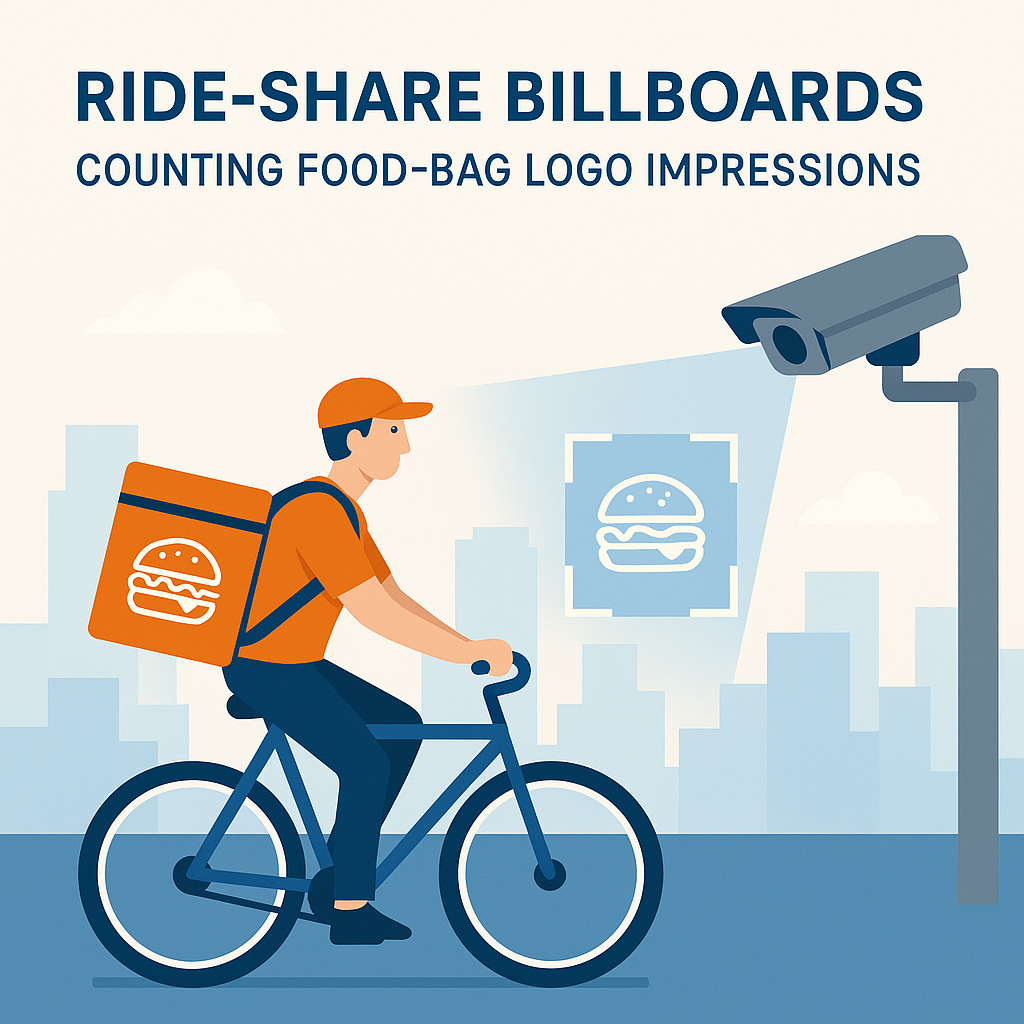
Ride-Share Billboards: Counting Food-Bag Logo Impressions
Food-delivery couriers are no longer just moving meals — they’re moving media. Every branded tote or delivery bag zipping through city streets is a potential mobile out-of-home (OOH) billboard, reaching thousands of consumers in high-value moments like lunch breaks and dinner rush. With the rise of AI-powered computer vision, brands can now use existing traffic cameras to count and map these impressions in real time, gaining geo-granular insights into urban reach and customer hotspots.
For executives, this isn’t just a marketing curiosity — it’s a new, measurable channel that ties directly to EBITDA impact. Courier bags deliver impressions at a fraction of the cost of traditional ads, extend brand visibility far beyond the delivery moment, and can be audited with the same rigor as digital campaigns. Early adopters that pilot vision-driven “ride-share billboards” today will secure a first-mover data advantage tomorrow, turning everyday deliveries into a scalable, revenue-driving media asset.
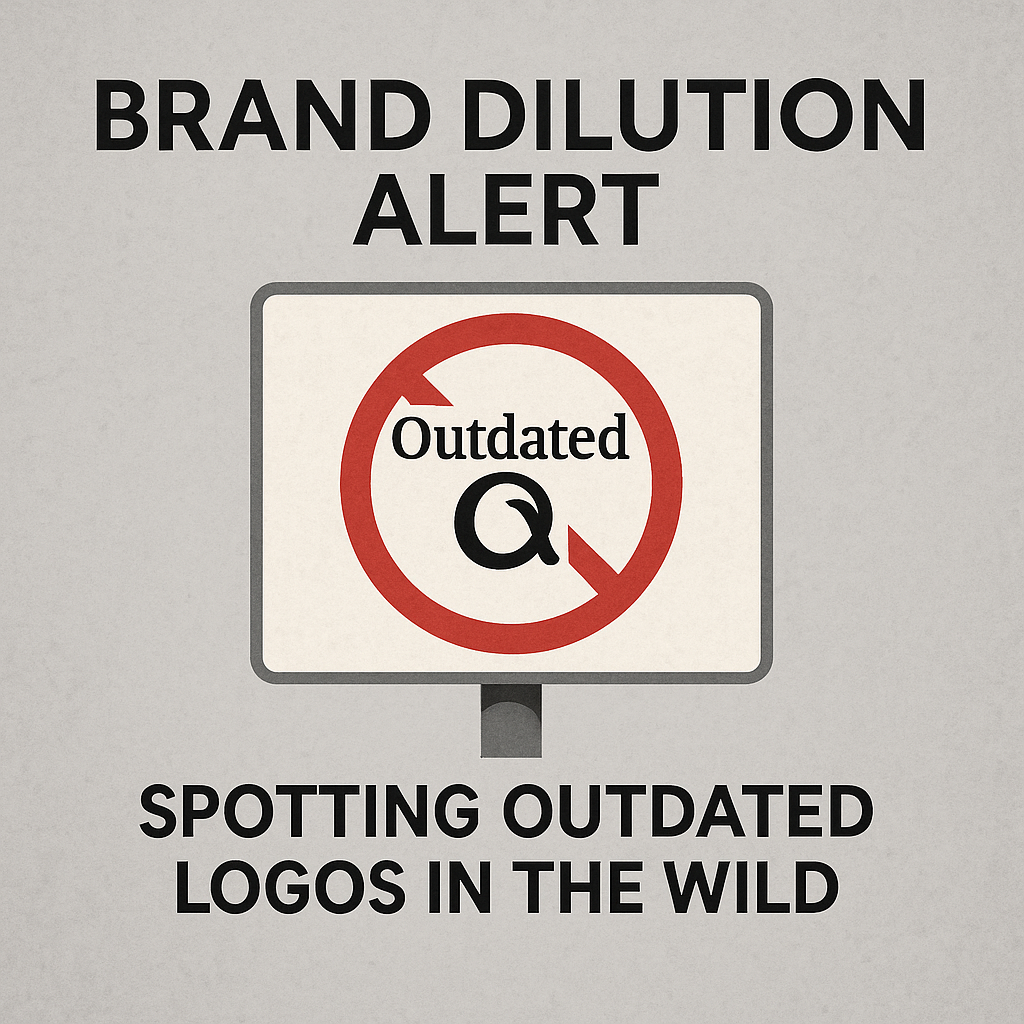
Brand Dilution Alert: Spotting Outdated Logos in the Wild
Outdated logos are more than a design oversight — they are a hidden liability that erodes brand equity and weakens pricing power. In today’s fragmented marketplace, legacy marks can appear anywhere from remote kiosks to viral social media posts, multiplying unnoticed and undermining hard-won consumer trust. Modern C-level leaders are embracing continuous, AI-powered logo monitoring to transform brand governance from a periodic check into a strategic safeguard, protecting millions in enterprise value and ensuring every customer touchpoint reflects a unified, modern identity.
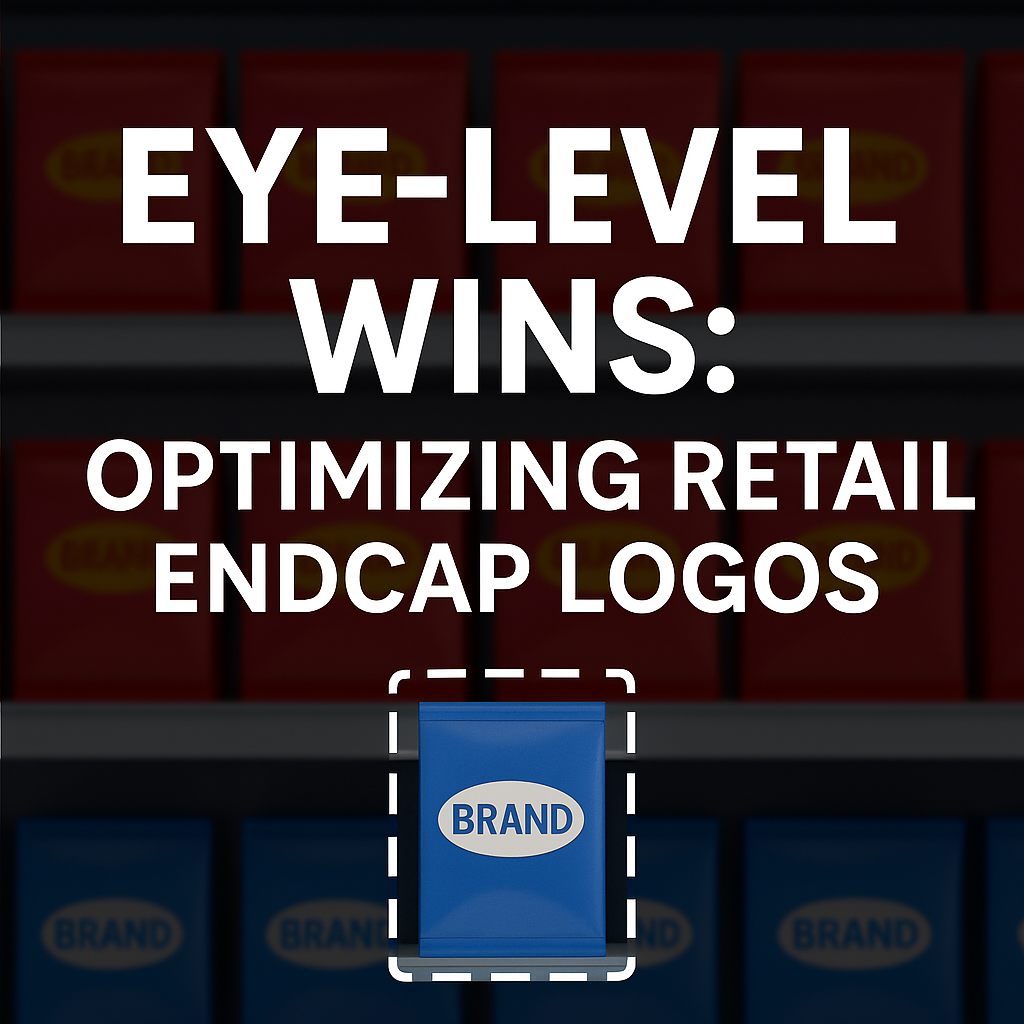
Eye-Level Wins: Optimizing Retail Endcap Logos
In retail, what happens at eye level doesn’t just influence what shoppers buy — it shapes the entire P&L. Shelf studies reveal that products placed in the shopper’s direct line of sight attract 35% more attention and drive significant sales lifts. Yet many brands still struggle to see, let alone optimize, what’s really happening across thousands of stores. Today, AI-powered computer vision is rewriting the rules, turning ordinary aisle photos into boardroom KPIs. C-level executives can now benchmark, measure, and improve shelf performance at unprecedented speed and scale — transforming logo placement from a merchandising guess into a strategic, profit-driving advantage. This post explores how next-generation shelf analytics are empowering decision-makers to win the battle for attention, maximize ROI, and drive sustainable growth by keeping their brands always in the shopper’s gaze.
